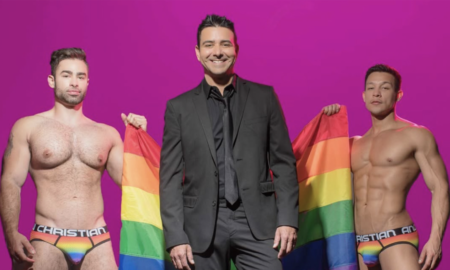On November 10, 2025, the U.S. Supreme Court declined to revisit or overturn its landmark 2015 ruling in Obergefell v. Hodges, which legalised same-sex marriage nationwide. This decision came as the justices rejected an appeal from Kim Davis, the former Kentucky county clerk who gained national attention for refusing to issue marriage licences to same-sex couples following the original Supreme Court ruling. Davis contended that complying with the ruling violated her religious beliefs, and after defying court orders, she was briefly jailed in 2015 for contempt of court. Despite her defiance, the court upheld the legal precedent, sending a clear message that constitutional rights must be respected and protected.
Davis had been attempting to overturn a lower-court order requiring her to pay $360,000 in damages and attorney’s fees to a same-sex couple she denied a marriage licence. Her legal team argued for the revisiting of the Obergefell decision by invoking Justice Clarence Thomas’s criticisms of the landmark case. Thomas remains a vocal dissenter, having called for the decision’s reversal and arguing on substantive due process grounds to reconsider related rights, including contraception. However, the Supreme Court as a whole declined to take up Davis’s appeal, thereby leaving in place the Obergefell ruling and the financial penalties imposed on Davis.
The court’s decision is particularly noteworthy in the context of its recent jurisprudence. In 2022, the Supreme Court overturned Roe v. Wade, striking down the constitutional right to abortion and signalling a readiness among some justices to overturn long-standing precedents. Justice Amy Coney Barrett, who was not on the court in 2015, has expressed that while some previous decisions might warrant reconsideration, same-sex marriage may differ from abortion rights. Barrett has emphasised the societal reliance on Obergefell, noting that marriages and family lives have been built on its protections. Chief Justice John Roberts, though dissenting in Obergefell, has remained silent on calls to revisit it, and Justice Samuel Alito, another dissenter, has criticised the ruling but publicly stated he is not advocating for its reversal.
The decision to refuse Davis’s appeal was met with approval from LGBTQ+ advocacy groups. Kelley Robinson, president of the Human Rights Campaign, praised the Supreme Court for upholding constitutional rights and holding those who disregard them accountable. Her statement highlighted the broader implications of the ruling, underscoring the importance of respecting the rights of all individuals regardless of personal beliefs.
The saga of Kim Davis ultimately receded from the public stage after Kentucky passed legislation removing county clerks’ names from marriage licenses, a move intended to avoid similar conflicts. Davis lost her role in a subsequent election but continued her legal fight to overturn the damages award against her, culminating in this failed Supreme Court bid. Her case illustrates the tensions between religious liberty claims and the enforcement of constitutional civil rights, a balance that the court’s current stance upholds firmly in favour of equality under the law.
The Supreme Court’s decision on this matter cements the permanence of same-sex marriage rights in American constitutional law, reflecting the court’s recognition of the profound personal and societal reliance on the Obergefell ruling. While dissent persists among some justices, the majority of the court has, for now, rejected efforts to roll back these protections, marking an important moment for the LGBTQ+ community and civil rights advocates.
Source: Noah Wire Services




















